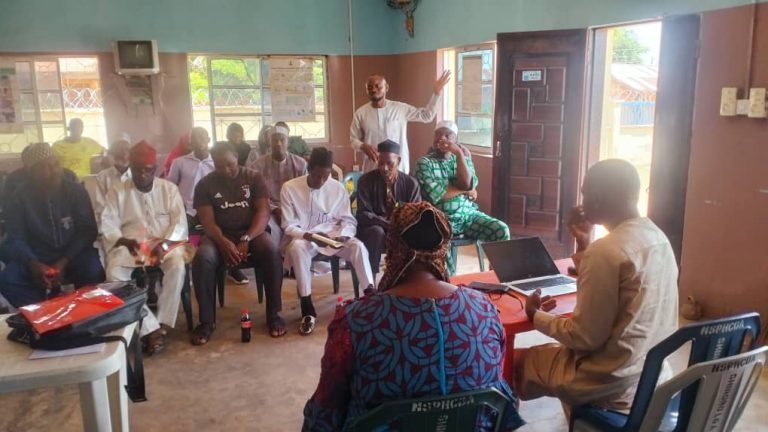With just days to go, health workers, community leaders, and development partners in Shiroro Local Government Area of Niger state, are joining forces to prepare for polio and two other major health campaigns aimed at safeguarding the lives of children and women.
By Abubakar Abdullahi el-Kurebe
In a taskforce meeting held on Tuesday at the newly established National Primary Health Care Development Agency (NPHCDA) office in Kuta, local health teams and their partners reviewed plans for the upcoming Polio Outbreak Response (OBR) campaign, the HPV vaccine rollout, and Child Health Week — all scheduled to run from June 14 to June 17, 2025.
“These campaigns are not just about vaccines. They’re about protecting lives, giving every child a fair start, and building a healthier Shiroro,” said Musa Kabir, Health Educator and convener of the meeting.
What the campaigns are about:
- Polio (OBR) Campaign
Targeting children under 5 years old, this campaign aims to prevent any resurgence of polio, a life-threatening but vaccine-preventable disease. - HPV Vaccine Rollout
Girls aged 9 to 14 will receive the Human Papillomavirus (HPV) vaccine to protect them from cervical cancer later in life. - Child Health Week
Children aged 6 months to 5 years will receive Vitamin A supplements, deworming medication, and nutrition checks. Pregnant women will also receive essential prenatal services.
Present at the meeting were representatives from the local health department, World Health Organization (WHO), UNICEF, traditional rulers, religious leaders, and community mobilizers.
Mr. Ayuba Danladi from WHO highlighted lessons from past campaigns:
“We’ve seen challenges—especially in hard-to-reach areas and communities with low vaccine acceptance. This time, we must do better. We must listen, learn, and adapt.”
Ms. Victoria Jones of UNICEF applauded the dedication of frontline workers:
“You are the heart of this campaign. Your commitment ensures that no child is missed, no mother is left behind.”
Al-Mustafa Kuta, Head of Environmental Services, reminded participants of the need for clean practices, especially as the rainy season begins. He raised concerns about improper disposal of baby diapers and waste used on farms, warning that poor hygiene could compromise the impact of these health efforts.
The meeting closed on a note of unity. All stakeholders pledged to reach every household, build trust within communities, and ensure that every eligible child and mother benefits from these life-saving interventions.
“Together, we can prevent disease, strengthen our families, and prove that health truly starts with community,” Musa Kabir concluded.


